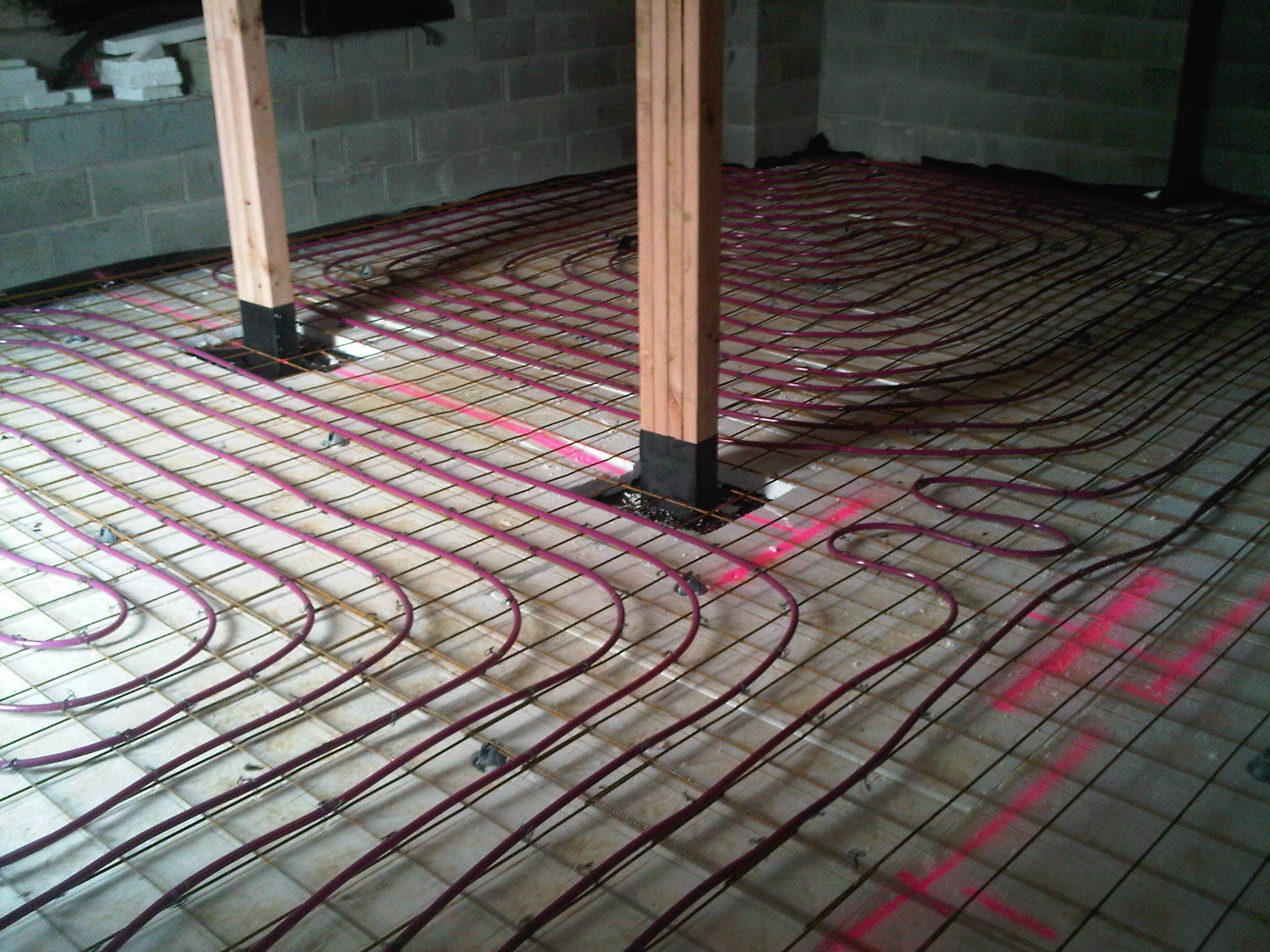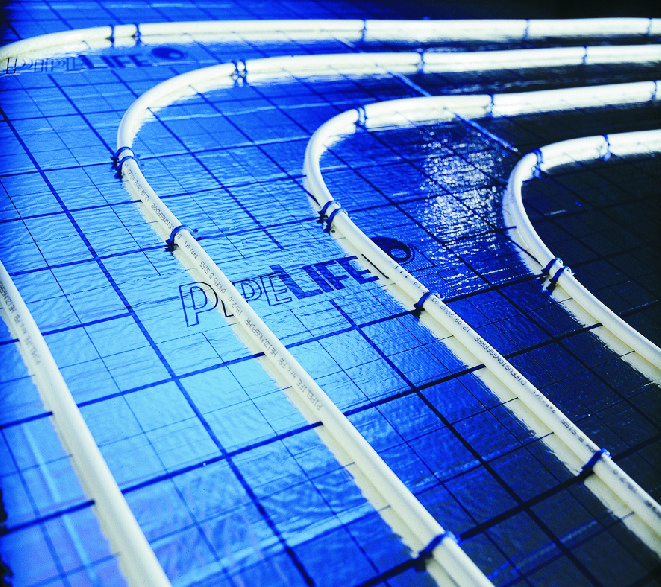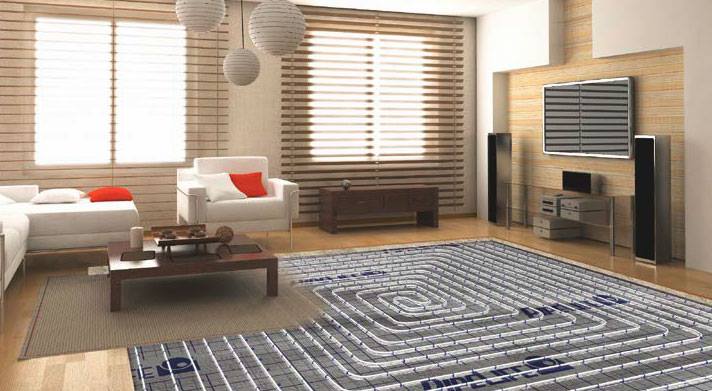Services

Under Floor Heating
Conventional heating systems, using convector radiators, provide warmth within a space or building by heating the air in the room. By comparison, Underfloor Heating transfers heat from a very large surface area, which is only slightly warmer than the room. The floor to ceiling temperature and humidity levels remain more constant producing a more comfortable environment for occupants. Also the heated floor will not cause convection drafts or circulation of dust within the room.
Underfloor Heating – How it works
The floor surface temperature required is very close to the actual room temperature and always below 29ºC in occupied areas to achieve an acceptable degree of comfort. It is essential however, that floor coverings do not provide too great a degree of insulation. Otherwise the heat in the Heating system may not be able to raise the room temperature to its design level.
The basic operation of a water-based underfloor heating system is pipe embedded within a concrete screed, with warm water circulating through the pipe work allowing for the gradual heating of the screed and eventual emitting of heat from the floor into the room. The heat is concentrated where it is most needed for human comfort and energy efficiency.
It is quite common to have a mixed system in one building where underfloor heating is used throughout the ground floor and radiators are used in the upper floors / bedroom areas, where only sporadic heat is required. Both systems can be operated off one boiler, but will need different time controls due to the different response times. The only exception to this is where Underfloor Heating is required for a single room
Please get in touch to discuss the right solution for you



